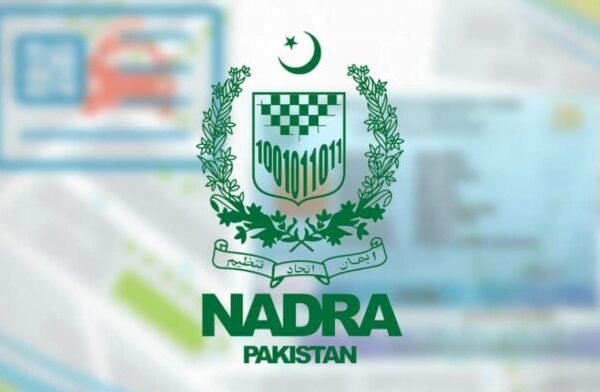As the world’s fifth-most populous country, Pakistan faces the challenge of catering to its vast population’s needs. While the nation possesses significant agricultural and raw material resources, it still relies heavily on imports to meet various other requirements. These imports play a crucial role in sustaining the economy and fulfilling the diverse demands of its people.
Among the major imports, fuels, and machinery top the list, essential for powering industries and supporting economic growth. Additionally, a variety of finished products, ranging from consumer goods to industrial equipment, are imported to cater to the diverse needs of the population.
Given the scale of Pakistan’s population and the complexities of its economy, strategic import policies and efficient resource management become imperative to ensure the country’s continued development and well-being. As the nation continues to grow and evolve, maintaining a balanced import-export dynamic remains crucial for its overall prosperity and progress.
List of Major Imports of Pakistan
Mineral Fuels and Oils Imports
With a massive population of 220 million, Pakistan stands as one of the most populous countries in the world. As the nation advances in infrastructure and development, the demand for energy sources has skyrocketed. It is no surprise, then, that mineral fuels and oils rank among the top imports of Pakistan, playing a pivotal role in powering its economy and supporting various industries.
Mineral fuels and oils account for a substantial 27 percent of the country’s total imports, amounting to a staggering $19.3 billion in the year 2021. These imports have become indispensable for Pakistan, where over 10 million vehicles roam the roads, contributing to the need for a reliable and efficient energy supply.
To fulfill this significant demand, Pakistan collaborates closely with key trade partners in the region and beyond. The United Arab Emirates, Saudi Arabia, South Africa, Qatar, and Kuwait stand as Pakistan’s top trade partners for mineral fuels and oils. These energy-rich nations play a crucial role in sustaining Pakistan’s economic growth by providing the necessary energy resources to fuel its progress.
Electrical Equipment Imports
In the era of digitization, the need for advanced electrical equipment has become paramount for any country’s growth and development. Pakistan is no exception, and electrical equipment has emerged as one of its major imports, constituting 8.2 percent of the country’s total imports.
With an approximate value of $5.99 billion, electrical equipment imports support Pakistan’s technological advancements and cater to the rising demand for electronics. Among the trade partners, China stands as the primary electronics trade partner, playing a leading role in supplying high-tech electrical equipment to the country. Additionally, Pakistan collaborates with South Korea, Japan, and Malaysia, further diversifying its sources of electrical equipment.
As Pakistan embraces digitization and innovation, the import of cutting-edge electrical equipment remains critical in fueling the country’s progress and powering its transformation into a tech-savvy nation.
Machinery Imports 
As industries blossom across Pakistan, the import of machinery has witnessed a significant surge. Playing a vital role in supporting industrial expansion, machinery imports constitute one of the country’s largest imports, amounting to 8.1 percent of the total imports.
The machinery imports are diverse and cater to various sectors, with a major portion being directed toward nuclear reactors and boilers, which are crucial for the country’s energy infrastructure. As Pakistan strives to meet its growing energy demands, the import of machinery becomes all the more imperative.
The approximate value of machinery imports stands at an impressive $5.88 billion, signifying its substantial contribution to Pakistan’s economic growth and development. In fostering industrialization and innovation, these imports have become an indispensable pillar of progress.
For machinery imports, Pakistan relies on strategic partnerships with major machinery hubs in Asia, namely Japan and China. Both these nations serve as significant suppliers of advanced machinery to support Pakistan’s industrial ventures. Additionally, the United States, United Kingdom, and Germany also play minor but notable roles as machinery import partners, further diversifying the sources of machinery for Pakistan.
Iron and Steel
Linked closely to the construction industry, iron and steel imports hold the utmost importance for Pakistan’s development. As the backbone of all infrastructure projects, these imports are indispensable for the country’s growth. Consequently, iron and steel make up 6.3 percent of the total imports, further solidifying their crucial role in propelling the nation forward.
The total value of iron and steel imports stands at approximately $4.59 billion, reflecting the magnitude of their impact on Pakistan’s economy. China, Japan, Vietnam, Iran, and Germany emerge as major trade partners, supplying the essential raw materials for the construction industry.
The construction sector plays a vital role in shaping Pakistan’s landscape, and iron and steel imports enable the realization of ambitious projects and modern urbanization.
Pharmaceutical Products
The pharmaceutical market in Pakistan stands as one of the largest globally, largely due to the country’s massive population. With a soaring demand for medicines and healthcare products, Pakistan’s reliance on pharmaceutical imports has grown significantly.
Due to limited local production capacity, a substantial portion of pharmaceuticals is imported from abroad. This sector accounts for approximately 5.2 percent of the country’s total imports, with a value of around $3.78 billion in 2021. The growing healthcare requirements of Pakistan’s 220 million people have fueled the need for a diverse range of medicines from overseas markets.
India holds a dominant position as a major pharmaceutical supplier to Pakistan, contributing 50 percent of the imported pharmaceuticals. Additionally, Western European nations, such as France, Germany, Switzerland, and Belgium, also play a vital role in meeting Pakistan’s pharmaceutical demands.
Animal and Vegetable Oils
In Pakistan, cooking oils are indispensable elements in daily food consumption, making animal and vegetable oils a significant import commodity. These oils and fats find extensive application in processed foods, household products like soaps, lubricants, and cosmetics, meeting the diverse needs of the population.
Making up 4.9 percent of the country’s overall imports, animal and vegetable oil imports have a substantial value of approximately $3.60 billion. As the population continues to grow, the demand for cooking oils remains consistently high, necessitating substantial imports to meet consumption needs.
Brazil, Malaysia, and Indonesia are major import-export partners for animal and vegetable oils, ensuring a steady supply of essential cooking ingredients to Pakistan.
Plastics
Plastics, despite their harmful environmental impact, remain an essential commodity for many countries, including Pakistan. From packaging materials to machinery components, plastics are ubiquitous in various industries, making them a significant import for the nation.
In 2021, plastics accounted for nearly 4.1 percent of Pakistan’s total imports, with a value of approximately $3.01 billion. Despite growing concerns about plastic pollution and its adverse effects on climate change, the demand for plastics continues to rise due to their versatility and cost-effectiveness.
Asia serves as the primary source of plastic imports for Pakistan, with key trading partners including Saudi Arabia, the United Arab Emirates, China, and Thailand. As the country grapples with the challenge of managing plastic waste responsibly, finding sustainable alternatives becomes crucial for minimizing environmental harm.
Organic Chemicals
Organic chemicals play a vital role in various industries and are indispensable for Pakistan’s diverse economy. These chemicals find application in household products, cosmetics, pharmaceuticals, biochemicals, and bioengineering, contributing significantly to the nation’s industrial growth.
Accounting for nearly 4.1 percent of Pakistan’s total imports in 2021, organic chemicals were valued at approximately $3 billion. China, Ireland, the United States, and Germany emerged as prominent trading partners for these essential imports, ensuring a steady supply of organic chemicals to support Pakistan’s manufacturing and industrial sectors.
As the country continues to advance in various fields, the responsible use and management of organic chemicals become essential to strike a balance between economic development and environmental preservation.












